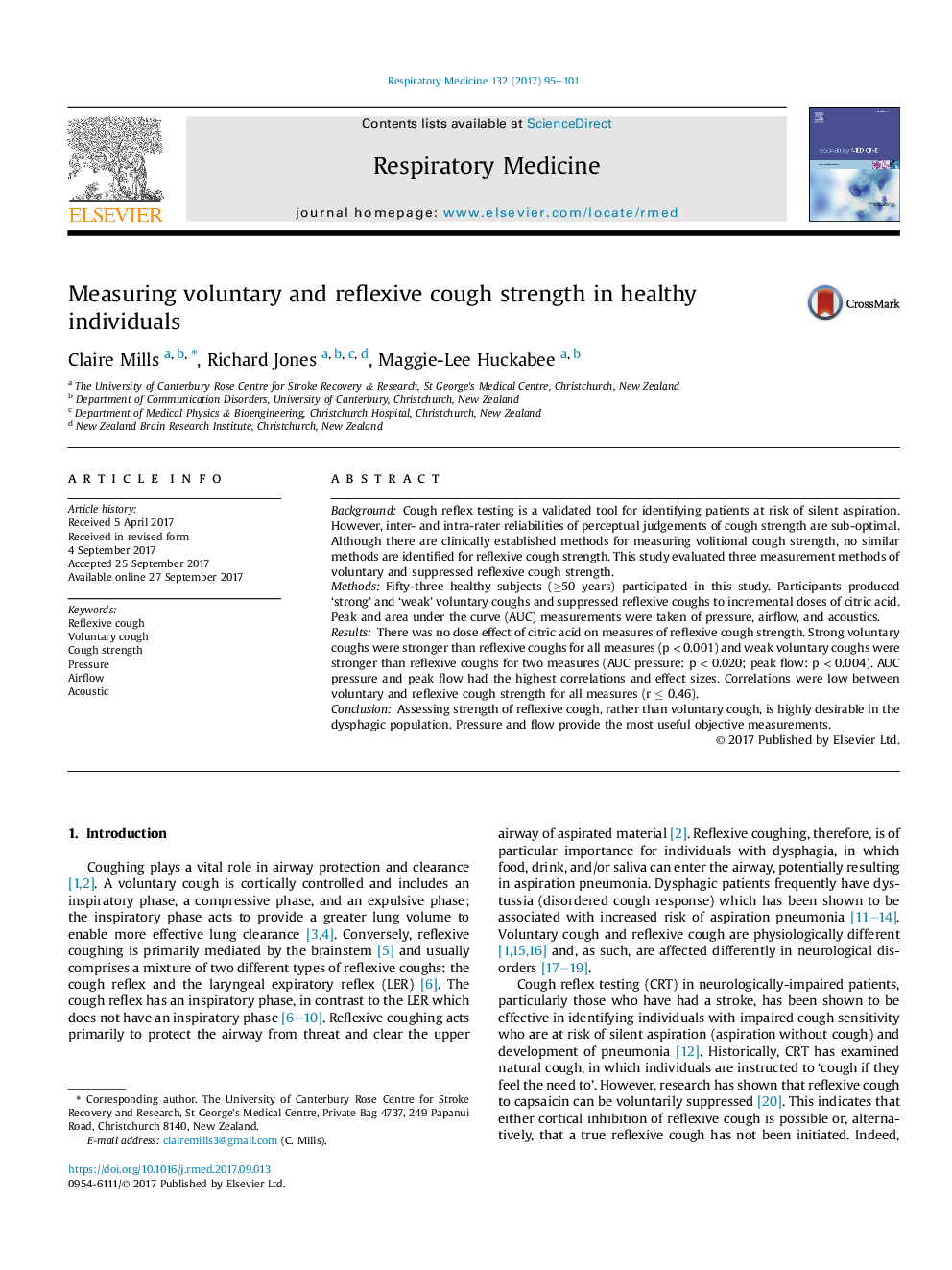| Article ID | Journal | Published Year | Pages | File Type |
|---|---|---|---|---|
| 5724791 | Respiratory Medicine | 2017 | 7 Pages |
â¢There is no dose effect on suppressed reflexive cough strength to citric acid.â¢Strong voluntary coughs are stronger than suppressed reflexive coughs.â¢Pressure and airflow are promising objective measures of reflexive cough strength.
BackgroundCough reflex testing is a validated tool for identifying patients at risk of silent aspiration. However, inter- and intra-rater reliabilities of perceptual judgements of cough strength are sub-optimal. Although there are clinically established methods for measuring volitional cough strength, no similar methods are identified for reflexive cough strength. This study evaluated three measurement methods of voluntary and suppressed reflexive cough strength.MethodsFifty-three healthy subjects (â¥50 years) participated in this study. Participants produced 'strong' and 'weak' voluntary coughs and suppressed reflexive coughs to incremental doses of citric acid. Peak and area under the curve (AUC) measurements were taken of pressure, airflow, and acoustics.ResultsThere was no dose effect of citric acid on measures of reflexive cough strength. Strong voluntary coughs were stronger than reflexive coughs for all measures (p < 0.001) and weak voluntary coughs were stronger than reflexive coughs for two measures (AUC pressure: p < 0.020; peak flow: p < 0.004). AUC pressure and peak flow had the highest correlations and effect sizes. Correlations were low between voluntary and reflexive cough strength for all measures (r â¤Â 0.46).ConclusionAssessing strength of reflexive cough, rather than voluntary cough, is highly desirable in the dysphagic population. Pressure and flow provide the most useful objective measurements.
